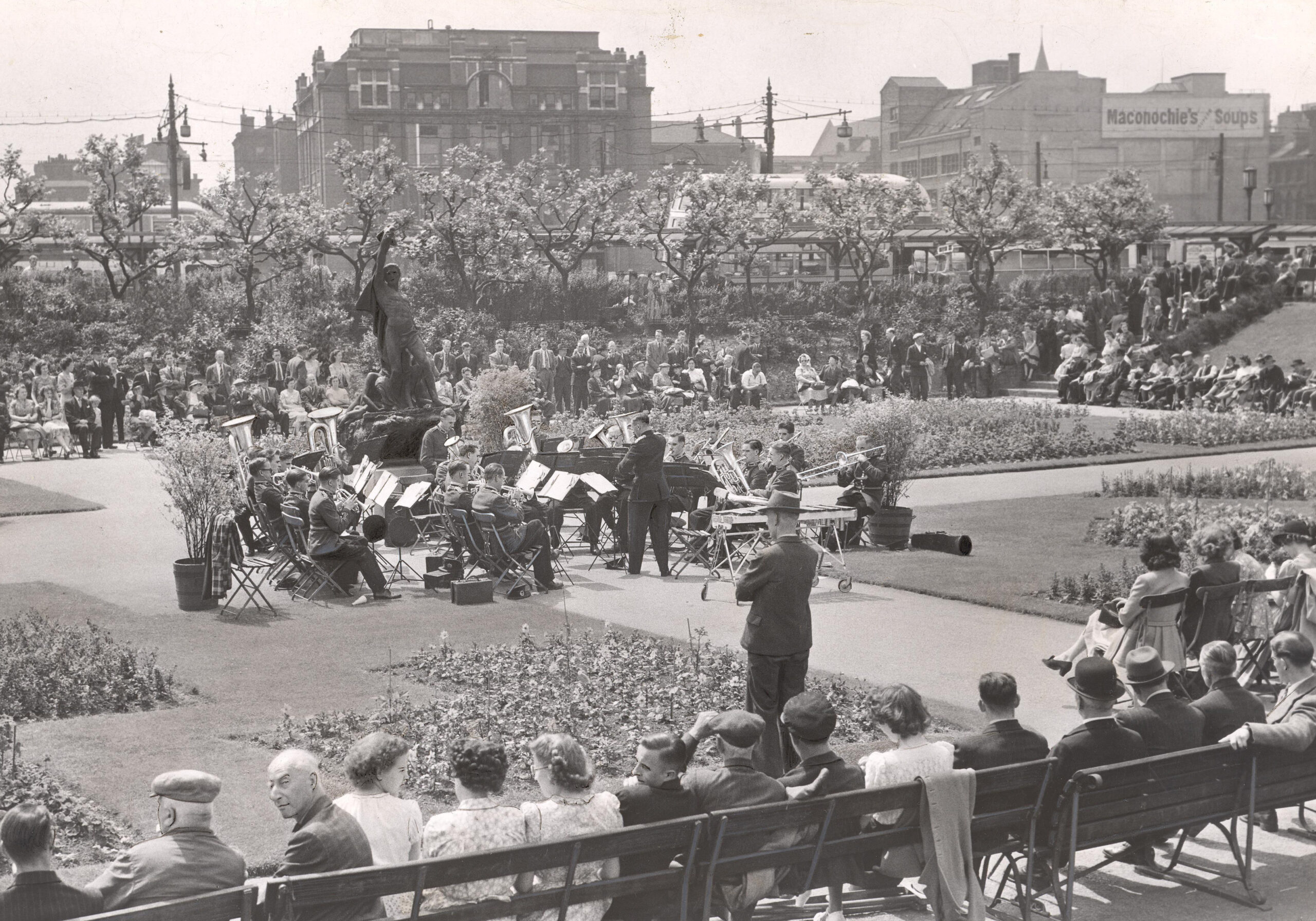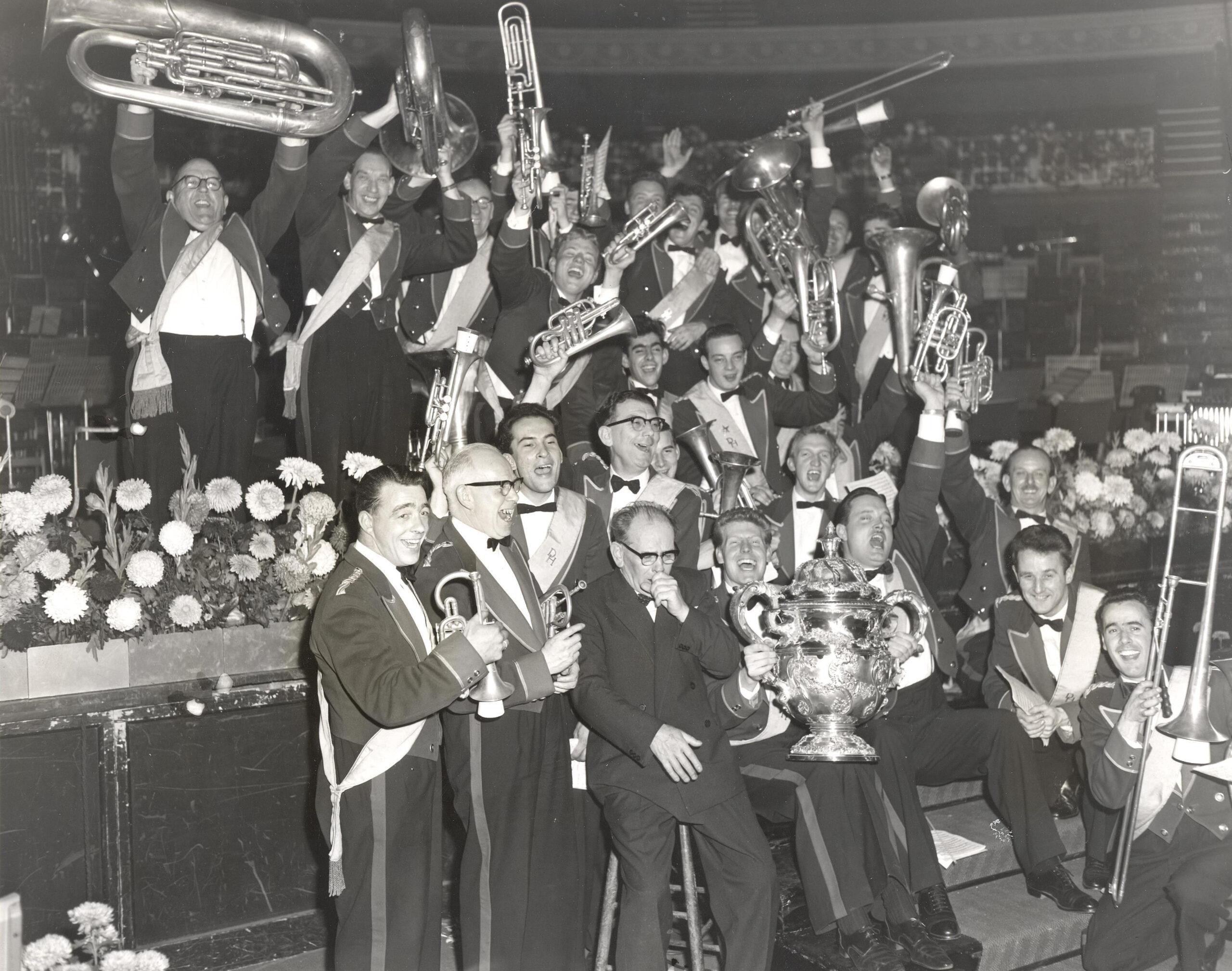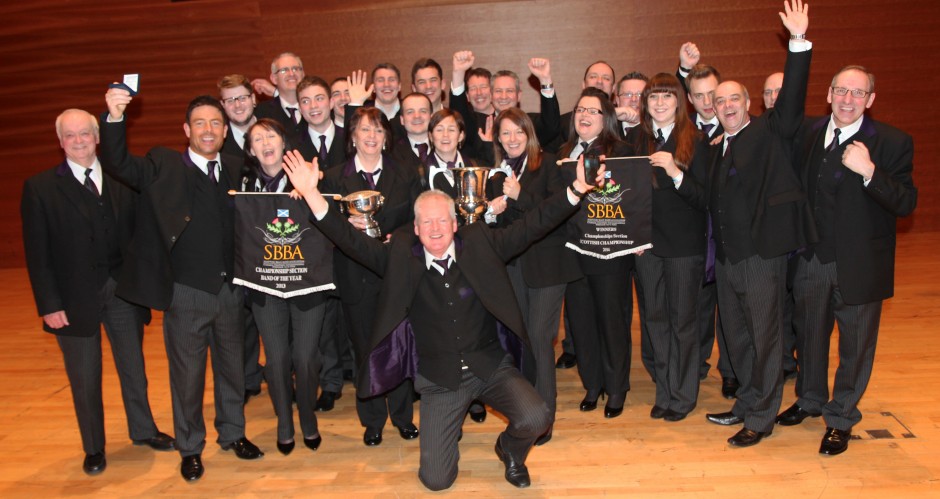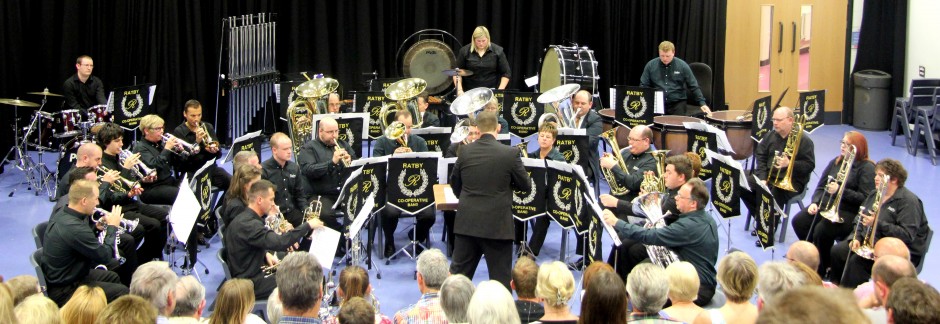Brass bands have a rich history worldwide – and in the UK they have a strong link with the co-operative movement.
British brass bands started gaining popularity in the 19th century, with roots in military, church and village bands. They created a sense of community around geography and industry, and provided an affordable form of entertainment for working classes around factories and agricultural labour.
Playing in a brass band was considered a socially and morally advantageous activity, with players having less time to spend in public houses. They were also a source of pride, especially if your band – or one that you supported – took part in local, regional or national competitions.
The co-operative movement, active in community and industry, was the ideal environment for brass bands to thrive.
In 1898, the Co-operative Wholesale Society (CWS) opened a tobacco factory in Manchester, not far from its Balloon Street headquarters, and this became the home of the original CWS Brass Band in 1900.
First known as the Tobacco Band, it made a name for itself on the concert and contest circuit, winning first prize at the 1931 Junior Shield Competition at the Crystal Palace. In the mid 1940s, it underwent a re-organisation, which included changing its name to the CWS (Manchester) Band, and soon after achieved its first major success, coming first at the British Open Championships at Belle Vue in 1948.
Between 1947 and 1970 it took part in this competition on 18 occasions, winning it four times and reaching the top three 12 times.

In the late 1950s and early 60s they were the “superstars of the brass band world”, said band expert Chris Helme, with the Fontana record label marketing them as ‘The Famous CWS (Manchester) Band’.
In a feature looking at the early years of the band Mr Helme said the band’s “long awaited crowning glory” came on 20 October 1962, when they became the number one band at the Daily Herald National Brass Band Championships at the Royal Albert Hall with Musical Director, Alex Mortimer.
“They played Frank Wright’s arrangement of Verdi’s ‘Force of Destiny’. A performance which is still talked about today,” added Mr Helme. You can listen to a recording of the performance here.

“But in 1985 the CWS board decided that a brass band was not the image the co-op wished to promote in the future and made the decision the band would cease to exist. Its last appearance was at Dobcross Band Club in 1985.”
It was then taken over by Manchester City Council and became officially known as The City of Manchester Band, before finally being disbanded in 1993.
However, other co-operative bands are still thriving.
The Co-operative Funeralcare Band (variously known as the Scottish CWS Band, the CWS (Glasgow) Band and the Scottish Co-op Band) is the most successful band in Scottish competition history, having won the Scottish Championship on 32 occasions, most recently in March 2014. In 1990, it became the first Scottish band to win the National Championship of Great Britain. It repeated this feat once more in 1996.

It was formed in October 1918 by the workers in the Shieldhall Factories of the Scottish Co-operative Wholesale Society, and continued support from the co-operative movement has been a vital factor in the band’s success. All band members are also registered members of the Co-operative Group.
In British competitions, bands are organised into five sections, or leagues, with the top level being the championship section, followed by 1st, 2nd, 3rd and 4th sections. The Co-operative Funeralcare Band competes in the highly-regarded championship section, as do the Co-operative Funeralcare North West band, the Clacton-on-Sea Co-operative Band (founded in 1948 and sponsored by East of England Co-operative) and the Leicestershire Co-op (Snibston) Band.
Based in Coalville, Co-op (Snibston) is an amalgamation of Leicestershire Co-op (South Midlands Welfare) Band, originally a colliery-based band formed in 1971, and Charnwood Brass, from Loughborough. As with all co-op bands, it adheres to co-operative values and principles, with the aim of becoming “a happy championship section band by January 2017 through development of members, innovation and constantly improving performances.”
Ratby Co-operative Brass Band, founded in 1906, is slightly different in that, rather than being set up by a factory or colliery owner like many others, it was funded by a public subscription from villagers.
The organisation now consists of four bands ranging from beginner and junior bands to a premier ensemble and the championship section senior band. It is also the only band to ever take the stage at the British Open Championship with a female conductor.
